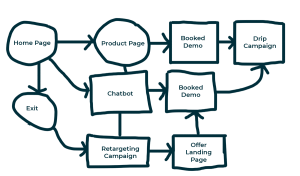For a long time, the idea that the prototype of the manager / CEO was a remote position, someone who “did not get his hands dirty” was installed in the collective consciousness.
They even wondered if the job included getting involved in the production or development line. The option was not to do so and that resulted in a disconnect between the service and the end user. If the leaders of the company were not customers of the products or services they develop, how would they improve or recommend them to others?
This resulted in vertical companies where only few people could interact with the heads (and that after a lot of bureaucracy); little or no innovation; poor customer service and too many consultants to uncover problems that would have been resolved much faster if the manager had been part of the chain from the start. The Bossy manager model who spent all day giving orders and delegating real work to others while he was locked in his office (apparently very busy) may have worked relatively well a couple of decades ago, but times have changed and companies too. Today such a manager will be disconnected with his solution and will not last long in his position. To change this reality, we have to face some challenges. The first is manager 2. 0 should come to your desk because of your personal/professional achievements and not because of contacts, credits or payment of favors. It will be essential that the manager has a connecting role for coordinated work with the areas of technology, innovation, marketing, communications, commercial, etc.
Technology brought the need to update and be aware of the latest trends. Today, the challenge for leaders is to lead through action and not talk. You can’t define goals if you don’t know how to recognize or measure them.
The second challenge is to understand that relationships within companies have also been transformed. Years ago, an order from the manager was something indisputable, with no option to refute. With the horizontality that exists today, it is beneficial to listen to the opinion of the people.
Every time companies solve more complex problems that need the expertise and communication of various skills; promoting interaction but at the same time “getting to port” is a challenge that is achieved with action.
Finally, today’s leaders are neither self-absorbed nor solely concerned with financial gain. In an interconnected world and with global challenges such as the pandemic or the climate crisis, business objectives are as important as the impact that the company generates on communities and the environment. More than ever, we need capable and well-rounded people to meet these challenges.
Business & Finance Articles on Business 2 Community(30)







